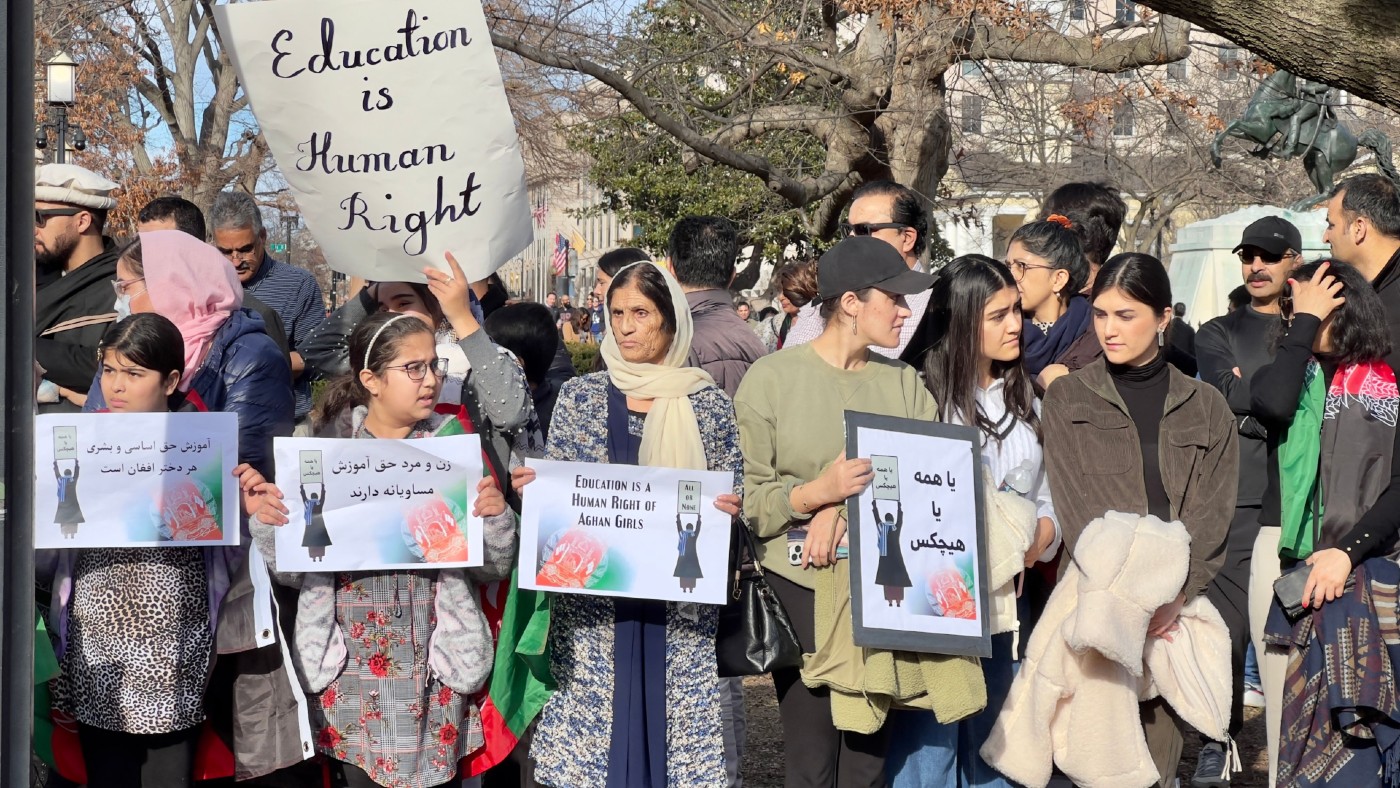Taliban returns to ‘Stone Age Islamism’ in Afghanistan
Taliban leaders view ‘complete gender segregation’ as a recipe for a ‘truly Islamic system’

A free daily email with the biggest news stories of the day – and the best features from TheWeek.com
You are now subscribed
Your newsletter sign-up was successful
“With a single decision, Afghanistan’s Taliban rulers have crushed the dreams of a generation of women,” said The Washington Post. On 20 December, the Islamist regime announced that women would be barred from attending universities. That followed earlier decrees banning girls from secondary schools.
Taliban officials say the ban is “necessary to prevent the mixing of genders in universities”, and claim that some subjects being taught violate the principles of Islam. “Balderdash.”
In reality, this ban is just another sign that hardliners within the Taliban, the ones “with the harshest Pashtun village mores”, have triumphed. The more moderate voices heard when the Taliban regained power in 2021, those that had promised that this time the Taliban regime would be more liberal, have been vanquished. The Taliban’s university ban “feels like a point of no return” for millions of women.
The Week
Escape your echo chamber. Get the facts behind the news, plus analysis from multiple perspectives.

Sign up for The Week's Free Newsletters
From our morning news briefing to a weekly Good News Newsletter, get the best of The Week delivered directly to your inbox.
From our morning news briefing to a weekly Good News Newsletter, get the best of The Week delivered directly to your inbox.
Taliban leaders view “complete gender segregation” as a recipe for a “truly Islamic system”, said Sultan Barakat on Al Jazeera (Doha). They couldn’t be more wrong. Not only is the right of women to an education “enshrined in Islam”, it is essential to the functioning of society. How can women be cared for by female doctors, say, if no women are allowed to take medical degrees?
Women are paying a high price for such bigotry, said Zahra Joya in The Guardian. Child marriages are rife; women’s suicide rates are on the rise. Some girls are bravely attending secret classes to continue their education, but how will they ever prosper in a state that bans women from setting foot in parks and walking streets without a male companion? It even bans them from begging.
Taliban’s ‘anti-women hatred’
Yet the Taliban doesn’t seem to care, said Valérie Toranian in Le Point (Paris). Days after announcing its university ban, it ordered national and international NGOs to stop employing women, at a stroke denying thousands of Afghans both a valuable source of income and “a window into life”. You’d have thought this “anti-women hatred” would set off “a tsunami of retaliatory measures” from foreign powers; yet all they do is protest “politely and softly”.
Alas, there’s little else to do, said Christian Böhme in Der Tagesspiegel (Berlin). True, Afghanistan is well on the way to “Stone Age Islamism”, but to respond by cutting humanitarian aid, as some suggest, would be disastrous in a country where most people go hungry and up to 97% could be living below the poverty line. However appalling the Taliban’s war on women, the West owes it to those worst affected to keep the aid flowing.
A free daily email with the biggest news stories of the day – and the best features from TheWeek.com
-
 Switzerland could vote to cap its population
Switzerland could vote to cap its populationUnder the Radar Swiss People’s Party proposes referendum on radical anti-immigration measure to limit residents to 10 million
-
 Political cartoons for February 15
Political cartoons for February 15Cartoons Sunday's political cartoons include political ventriloquism, Europe in the middle, and more
-
 The broken water companies failing England and Wales
The broken water companies failing England and WalesExplainer With rising bills, deteriorating river health and a lack of investment, regulators face an uphill battle to stabilise the industry
-
 The fall of the generals: China’s military purge
The fall of the generals: China’s military purgeIn the Spotlight Xi Jinping’s extraordinary removal of senior general proves that no-one is safe from anti-corruption drive that has investigated millions
-
 Epstein files topple law CEO, roil UK government
Epstein files topple law CEO, roil UK governmentSpeed Read Peter Mandelson, Britain’s former ambassador to the US, is caught up in the scandal
-
 Iran and US prepare to meet after skirmishes
Iran and US prepare to meet after skirmishesSpeed Read The incident comes amid heightened tensions in the Middle East
-
 Syria’s Kurds: abandoned by their US ally
Syria’s Kurds: abandoned by their US allyTalking Point Ahmed al-Sharaa’s lightning offensive against Syrian Kurdistan belies his promise to respect the country’s ethnic minorities
-
 Israel retrieves final hostage’s body from Gaza
Israel retrieves final hostage’s body from GazaSpeed Read The 24-year-old police officer was killed during the initial Hamas attack
-
 China’s Xi targets top general in growing purge
China’s Xi targets top general in growing purgeSpeed Read Zhang Youxia is being investigated over ‘grave violations’ of the law
-
 Panama and Canada are negotiating over a crucial copper mine
Panama and Canada are negotiating over a crucial copper mineIn the Spotlight Panama is set to make a final decision on the mine this summer
-
 Iran unleashes carnage on its own people
Iran unleashes carnage on its own peopleFeature Demonstrations began in late December as an economic protest